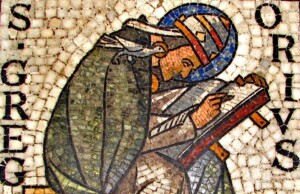This year, at Sunday Mass, we have been reading through Luke’s gospel. Two weeks ago, we heard the famous story of Jesus’s visit to Martha and Mary, where Jesus chided Martha, “You are anxious and worried about many things!” Is this not the case for so many of us today? We are indeed anxious about many things. Jesus goes on to offer Mary’s actions as a contrast. She has chosen the “better part,” listening at the feet of Jesus.
For many centuries Martha and Mary were seen as types of the active life and the contemplative life. This interpretation is controversial today. But we are surely right to see a connection between Mary’s choice and monasticism. By withdrawing from the anxieties of the world, contemplative monks and nuns should become icons of peace, focusing all attention on Jesus.
Yet the reality is more complex. Today’s monks bring with themselves into the cloister all those worries that afflict modern persons. In this way, monasteries become places where our faith is truly put to the proof. Can we truly let go of those worries and put all our trust in God? Here, anxiety tends to arise not from the dense web of responsibilities that modern life poses for the laity, but from the dread of feeling useless in the face of today’s cultural challenges. The only remedy is the belief that God suffices for all things.
May this reality be a source of “the peace which the world cannot give” for all our friends!
